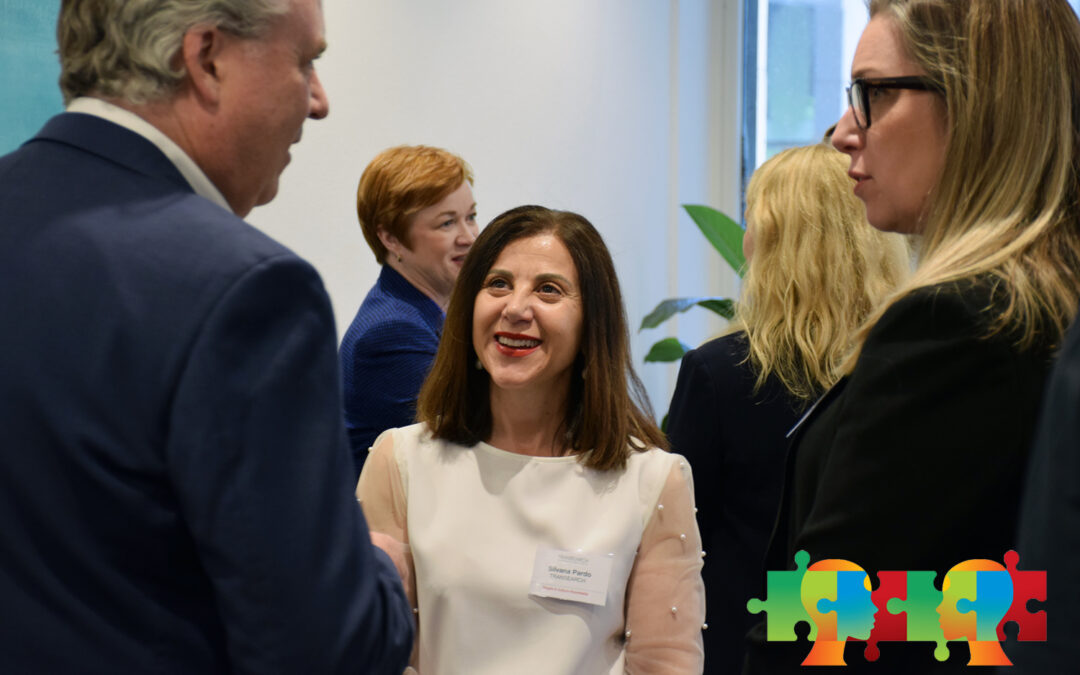Insights from our latest People & Culture Roundtable on Managing a Multigenerational Workforce
This month I hosted the latest Roundtable in our Executive People & Culture series, where I bring together industry leaders to discuss the hot topics for organisations right now. Talking about multigenerational leadership, I asked the group to consider the growing challenge of managing and leveraging a multigenerational workforce, and to think about how leaders can leverage generational differences as opportunities.
With a focus on how Gen Z (Generation Z or ‘Gen Z’ generally refers to people born between 1997 and 2012) is reshaping workplace culture and leadership, the conversation brought forward valuable insights about fostering collaboration across age groups.
Here are the key takeaways:
1. Navigating Generational Differences
Managing a multigenerational workforce requires nuanced leadership, particularly with the influx of Gen Z. Understanding the unique needs, motivations, and perspectives of each generation is essential for fostering collaboration and harmony.
2. Gen Z Prioritises Purpose Over Perks
Gen Z employees are driven by purpose, mission, and social responsibility more than traditional perks. Fair compensation, work-life balance and meaningful work are higher priorities for this generation than the typical office events or incentives.
3. Flexibility and Hybrid Work are Essential
Gen Z employees place a premium on flexibility. They prefer hybrid work models that allow for social interactions in the office (a few days a week) while also enabling remote work. Their well-being and work-life balance are non-negotiable, reshaping how companies think about workplace flexibility.
4. Tailored Benefits for Evolving Life Stages
As employee needs evolve, so must benefits. Companies are increasingly offering more flexible policies, from leave for caring for elderly relatives to bereavement leave for pets, aligning with Gen Z’s emphasis on holistic support.
5. The Rise of Technical Leadership
In tech-driven industries, the concept of “master your craft” emphasises the importance of technical expertise and specialised skills over traditional management competencies. It provides a pathway for career growth and recognition that particularly appeals to younger, digitally native Gen Z employees who might not otherwise be attracted to leadership roles.
6. Learning from Failure
Gen Z values environments where experimentation and learning from failure are encouraged. Leadership roles become more appealing when organisations support innovation and growth, creating space for younger employees to thrive.
7. Storytelling Bridges Generational Gaps
Recognising the contributions of long-serving employees through storytelling can bridge generational divides. Sharing these impactful stories highlights the value of experience and helps younger generations appreciate the contributions of seasoned professionals.
8. Inclusive Communication Styles Matter
Gen Z’s communication style is informal and immediate. Leaders who adapt to these preferences – embracing messaging, emojis, and a more casual tone – will foster a more inclusive team culture. Some examples of Gen Z catchphrases include “touch grass” – to encourage taking a break for fresh air, while “let them cook” means to allow individuals to excel in their own way. The phrase “ate and left no crumbs” signifies performing exceptionally well.
9. Reverse Mentoring
Reverse mentoring, where Gen Z employees share insights with more experienced leaders, has proven effective in bridging generational gaps. This approach fosters mutual learning, integrating fresh perspectives with experienced leadership.
10. Building an Inclusive Culture
Creating an environment where employees feel they can “be themselves” is crucial for a thriving multigenerational workforce. Respecting differences, valuing diverse perspectives, and fostering inclusivity are essential for long-term engagement across generations. This approach contrasts with more rigid corporate expectations and has been instrumental in bridging generational divides, allowing employees of all ages and backgrounds to bring their authentic selves to work.
As the workforce becomes more generationally diverse, organisations must adapt their leadership styles, workplace policies and communication approaches. By embracing flexibility, purpose and inclusivity, companies can build stronger, more connected teams that leverage the unique strengths of each generation.
Thank you to everyone who participated and a special thank you to our panellists, Meegan Marshall from Intrepid Travel, Lynsey Devitt from CyberCX and Jessica Chen from The University of Melbourne. As always, please reach out to me if I can be of any assistance to you or your organisation with any of the topics covered in this session.
If you would like to attend our People & Culture Roundtable or similar TRANSEARCH Australia events in future, please click here to register your interest.

Silvana Pardo is a Director of TRANSEARCH International Australia, one of Australia’s most progressive executive search firms and one of the leading executive search organisations in the world. With over 25 years of experience and an extensive business network of Human Resource professionals, Silvana enjoys an outstanding reputation as one of Australia’s leading Search Practitioners. Read more…


